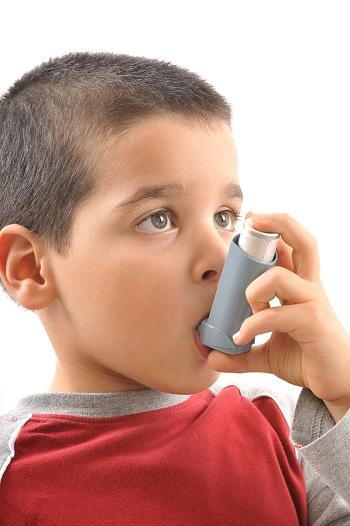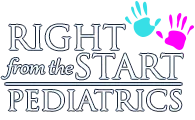Childhood asthma is more common than you might think. In fact, it is the most common chronic disorder in children, according to the Asthma and Allergy Foundation of America. Asthma is a long-term respiratory condition that causes swelling within the airways, making it different for your little one to breathe. How do you know if  your child might have asthma? The telltale signs include:
your child might have asthma? The telltale signs include:
- Trouble or difficulty breathing
- Wheezing or whistling when breathing in
- Tightness in the chest
- Coughing that often gets worse at night
- Fatigue, especially with exercise or play
If your child is experiencing or complaining about any of these symptoms it’s important that you schedule an appointment with a pediatrician as soon as possible. It’s important to write down the exact symptoms your little one has been experiencing, particularly because their symptoms may not be present during their evaluation. If you have a family history of asthma, this is something that your child’s pediatrician will want to know.
During the evaluation your doctor will also perform a physical exam, taking time to listen to both the heart and the lungs for signs of asthma. Sometimes a test known as spirometry will be used to test the lung function (this is most common in children over the age of 6 years old). This test is used to measure how much air is in the lungs and how quickly your child can exhale. Other tests may also be performed to check for other health issues that could be exacerbating your child’s asthma symptoms such as a sinus infection.
Asthma is serious and requires medication to keep this problem under control. While there is no cure for asthma, your pediatrician’s goal for asthma treatment is to prevent the severity and frequency of asthma attacks. We want to prevent your little one from having to rush to the hospital for a severe attack. Luckily, there are medications that your children’s doctor can prescribe to lessen asthma symptoms.
The type of asthma medication your child receives will depend on several factors including age. Infants and toddlers may require inhaled steroids to control asthma symptoms. The dosage will also change depending on your child’s age. Along with long-term medications that will be taken every day to help control symptoms and keep inflammation down there are fasting-acting medications that your child will also be prescribed (e.g. albuterol), which is only used when your little one feels an attack coming on. Before any medication is given to your child, your pediatrician will talk to both you and your little one about how to use asthma medication properly.








